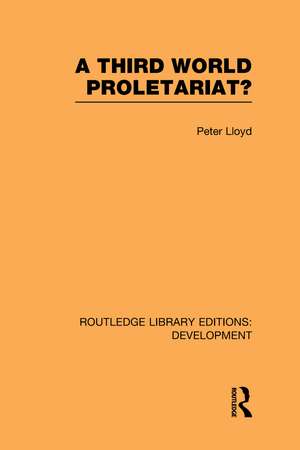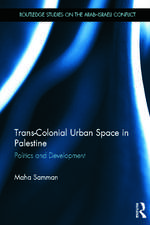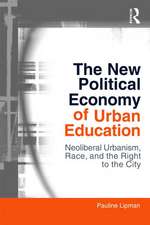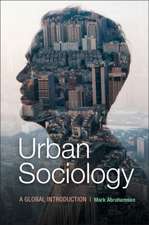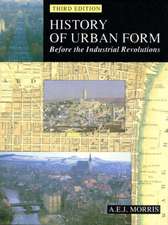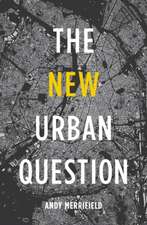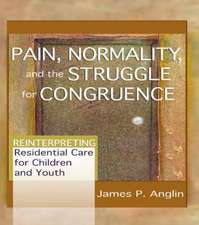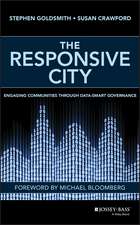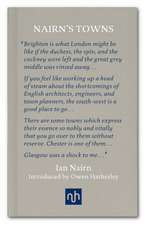A Third World Proletariat?: Routledge Library Editions: Development
Autor Peter C. Lloyden Limba Engleză Hardback – 26 noi 2010
Peter Lloyd examines the nature of Western class terminology derived largely from Marx and Weber, and assesses its utility in the analysis of Third World Urban society. An assessment is also made of the political strength of the urban poor, whether they are mobilising themselves or being mobilised from above. This reissue will be relevant to courses on Development studies and the Third World; it will also find a wider readership amongst social stratification and urban sociology.
Din seria Routledge Library Editions: Development
- 36%
 Preț: 823.99 lei
Preț: 823.99 lei - 35%
 Preț: 993.32 lei
Preț: 993.32 lei - 35%
 Preț: 528.32 lei
Preț: 528.32 lei - 36%
 Preț: 822.01 lei
Preț: 822.01 lei - 38%
 Preț: 765.95 lei
Preț: 765.95 lei - 38%
 Preț: 765.23 lei
Preț: 765.23 lei - 18%
 Preț: 1169.03 lei
Preț: 1169.03 lei - 38%
 Preț: 762.72 lei
Preț: 762.72 lei - 36%
 Preț: 823.99 lei
Preț: 823.99 lei - 36%
 Preț: 824.17 lei
Preț: 824.17 lei - 36%
 Preț: 824.89 lei
Preț: 824.89 lei - 36%
 Preț: 823.63 lei
Preț: 823.63 lei - 38%
 Preț: 765.95 lei
Preț: 765.95 lei - 36%
 Preț: 852.88 lei
Preț: 852.88 lei - 18%
 Preț: 1059.93 lei
Preț: 1059.93 lei -
 Preț: 372.29 lei
Preț: 372.29 lei - 18%
 Preț: 997.45 lei
Preț: 997.45 lei - 27%
 Preț: 243.12 lei
Preț: 243.12 lei - 38%
 Preț: 763.07 lei
Preț: 763.07 lei - 38%
 Preț: 766.12 lei
Preț: 766.12 lei - 36%
 Preț: 824.89 lei
Preț: 824.89 lei - 18%
 Preț: 1056.63 lei
Preț: 1056.63 lei - 36%
 Preț: 850.02 lei
Preț: 850.02 lei - 38%
 Preț: 765.40 lei
Preț: 765.40 lei - 36%
 Preț: 853.07 lei
Preț: 853.07 lei - 37%
 Preț: 1977.58 lei
Preț: 1977.58 lei - 36%
 Preț: 850.73 lei
Preț: 850.73 lei - 27%
 Preț: 263.97 lei
Preț: 263.97 lei - 36%
 Preț: 822.01 lei
Preț: 822.01 lei - 23%
 Preț: 325.33 lei
Preț: 325.33 lei - 36%
 Preț: 821.82 lei
Preț: 821.82 lei - 18%
 Preț: 1059.62 lei
Preț: 1059.62 lei - 29%
 Preț: 249.56 lei
Preț: 249.56 lei - 36%
 Preț: 824.34 lei
Preț: 824.34 lei - 36%
 Preț: 825.78 lei
Preț: 825.78 lei - 38%
 Preț: 765.95 lei
Preț: 765.95 lei - 35%
 Preț: 996.03 lei
Preț: 996.03 lei - 18%
 Preț: 1060.56 lei
Preț: 1060.56 lei - 24%
 Preț: 320.94 lei
Preț: 320.94 lei - 36%
 Preț: 824.34 lei
Preț: 824.34 lei - 27%
 Preț: 242.71 lei
Preț: 242.71 lei - 38%
 Preț: 764.34 lei
Preț: 764.34 lei - 28%
 Preț: 279.12 lei
Preț: 279.12 lei -
 Preț: 399.87 lei
Preț: 399.87 lei - 35%
 Preț: 530.66 lei
Preț: 530.66 lei - 36%
 Preț: 851.46 lei
Preț: 851.46 lei - 18%
 Preț: 1056.00 lei
Preț: 1056.00 lei - 38%
 Preț: 762.36 lei
Preț: 762.36 lei - 39%
 Preț: 679.23 lei
Preț: 679.23 lei
Preț: 485.19 lei
Preț vechi: 772.65 lei
-37% Nou
Puncte Express: 728
Preț estimativ în valută:
92.87€ • 100.91$ • 78.06£
92.87€ • 100.91$ • 78.06£
Carte tipărită la comandă
Livrare economică 21 aprilie-05 mai
Preluare comenzi: 021 569.72.76
Specificații
ISBN-13: 9780415601863
ISBN-10: 041560186X
Pagini: 140
Dimensiuni: 156 x 234 mm
Greutate: 0.42 kg
Ediția:1
Editura: Taylor & Francis
Colecția Routledge
Seria Routledge Library Editions: Development
Locul publicării:Oxford, United Kingdom
ISBN-10: 041560186X
Pagini: 140
Dimensiuni: 156 x 234 mm
Greutate: 0.42 kg
Ediția:1
Editura: Taylor & Francis
Colecția Routledge
Seria Routledge Library Editions: Development
Locul publicării:Oxford, United Kingdom
Cuprins
1. Introduction 2. The Class Debate 3. Economic Categories 4. Social Groupings 5. Political Action 6. Conclusion
Descriere
This reissue, first published in 1982, is concerned with the rapid contemporary metropolitan development in the Third World, at a time when manufacturing and public service sectors were expending at a terrific rate. Nevertheless, the phenomenal growth of the metropolitan cities brings with it an increase in social equalities, such that two thirds of the population of these cities may be described as the ‘urban poor’. This book concerns itself with the question: Can we describe these urban poor as a ‘proletariat’, or are such Western class terms totally inappropriate to the development of the Third World?
